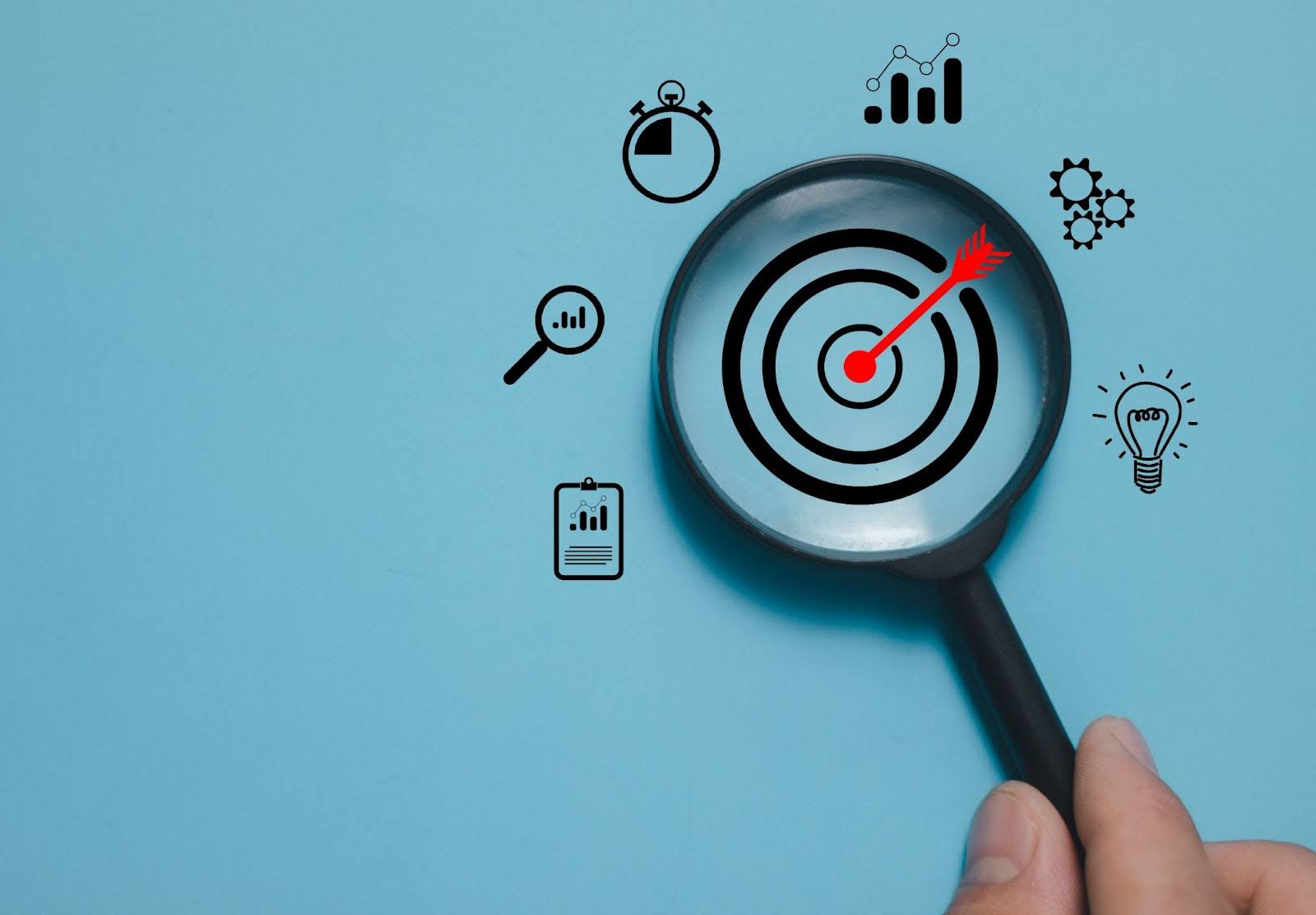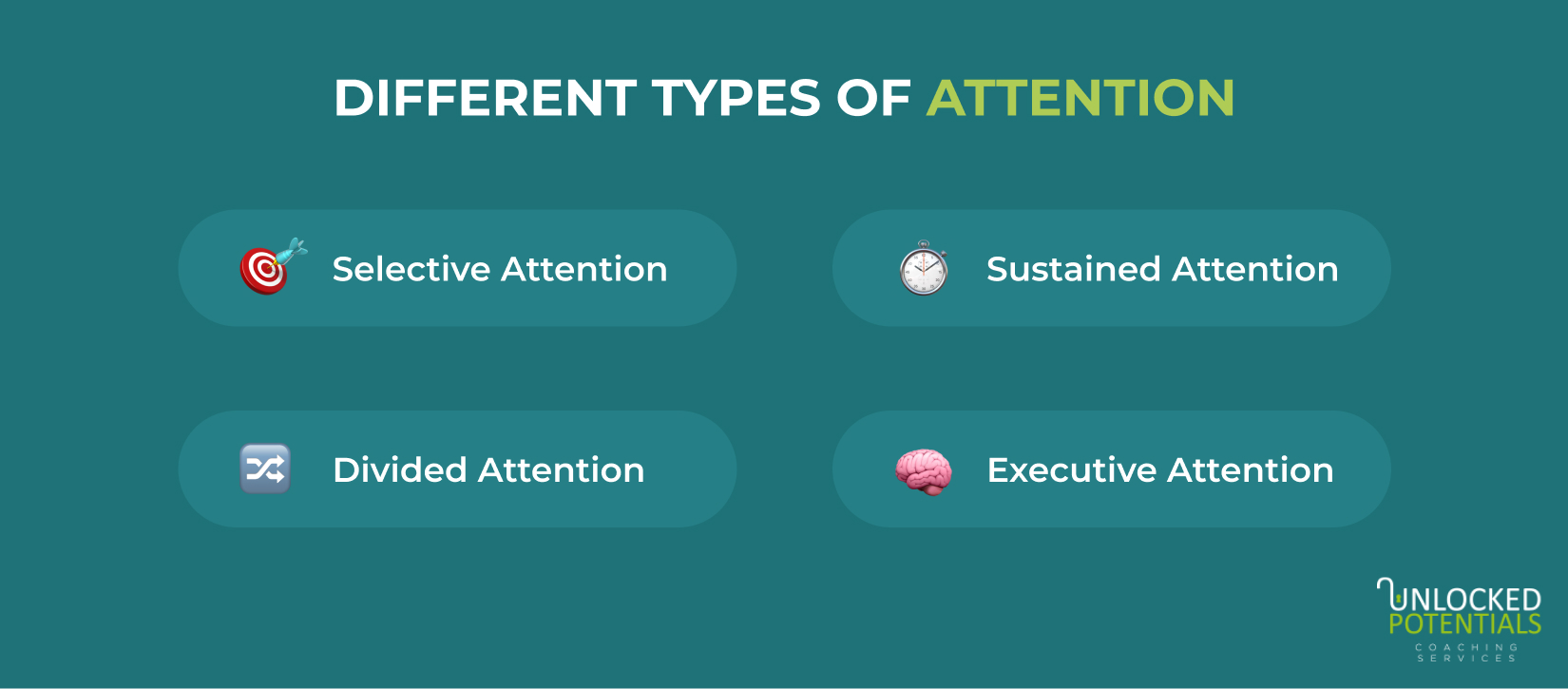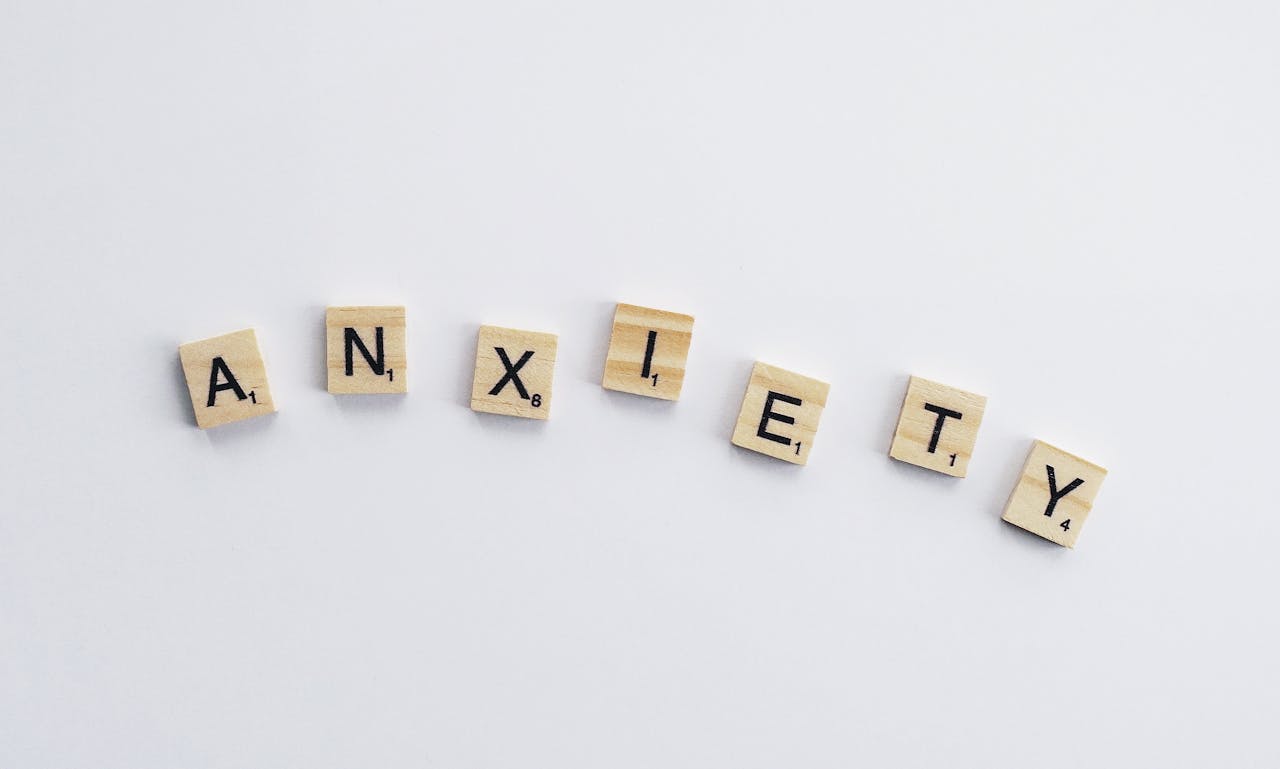6 Tips to Improve Concentration and Focus to Achieve Your Goals

Staying focused is a career-defining skill. Whether you’re climbing the corporate ladder or working towards a personal milestone, your ability to concentrate deeply on meaningful tasks can be the difference between progress and stagnation. Yet, many talented professionals find themselves constantly pulled in different directions, struggling to maintain attention amidst emails, meetings, and digital noise.
The good thing about focus is that it’s a learnable skill. Like any habit, it takes intentional practice, experimentation, and a deeper awareness of what helps you stay engaged (and what doesn’t). In this article, we’ll explore six strategies that will help you sharpen your concentration, cut through the clutter, and make meaningful progress towards your goals.
Why Your Focus is Always Under Attack
Everywhere you turn, there’s something that can distract you. Triggers might be different for every person, but there are common factors that can derail the focus of most people.
One of the most common sources of distraction is the smartphone. It has everything we need, including communication, information, and entertainment. It’s considered a necessity today.
Despite its usefulness, it can also detract our attention from work to trivial and time-wasting activities. It’s our window to having a digital social life in the comfort of our homes (or offices).
Another factor that can lessen our focus and productivity is poor working conditions. A lot of people work from home nowadays which is convenient. Yet, many fail to set up a suitable home office which causes them to lose focus on their jobs.
These are only some of the many reasons why you can’t fully focus on your tasks.
Understanding the Four Types of Attention
To improve focus, it’s essential to first understand how attention works. Psychologists identify four primary types of attention, each with its own function in how we process information and stay on task. By recognising these types, you can better identify where your own attention might be breaking down and how to address it.
-
Selective Attention
Selective attention is the ability to focus on one specific task or stimulus while filtering out distractions. It’s what allows you to stay absorbed in a report while your inbox pings in the background.
-
Sustained Attention
Sustained attention is your capacity to maintain focus over an extended period. It’s essential for long meetings, strategy sessions, or working on detailed tasks that require consistent mental effort. Struggles with sustained attention often show up as restlessness or the urge to multitask.
-
Divided Attention
Also known as multitasking, divided attention refers to managing multiple tasks at once, like replying to emails while on a call. While it can feel productive, it often leads to reduced efficiency and errors. In reality, switching between tasks drains cognitive energy and weakens overall focus.
-
Executive Attention
Executive attention is about consciously choosing what to focus on and when, especially in the face of competing priorities. It involves planning, goal-setting, and the ability to override distractions.
How to Improve Focus to Achieve Your Goals
By building intentional habits and understanding what influences your attention, you can create the right environment, internally and externally, to make steady progress toward your goals. Here are six strategies to help you stay focused and aligned.
1. Determine What Drives You
First, identify your goals. Figuring out your purpose means knowing what motivates you to develop habits and routines for a focused working environment.
Are you reward-driven? Then, aim to finish your project early and treat yourself to a filling dinner at your favorite restaurant. Does recognition from your coworkers help you work harder? If so, communicate this to your manager and explain its importance on your productivity.
Knowing what drives you to focus on your job will help you develop effective goal-setting strategies.
2. Build a Distraction-Free Work Environment
There’s a reason why most companies block social media sites on company devices during work hours. This is because social media can easily distract employees from doing their jobs effectively.
If you easily get distracted by social media, disconnect immediately. You might be surprised by how much work you can finish if you do this.
Another common distraction at work is conversing with coworkers. There’s nothing wrong with being friendly with your colleagues. But it can be a big problem if it prevents you from finishing your tasks.
Overcome distractions by identifying them early and becoming disciplined enough to avoid them.
Time management can help you be efficient once you find the perfect technique for you. There are various methods that you can try, such as:
1. Pomodoro:
Do tasks in 25-minute intervals while providing yourself with 5-minute breaks in between.
2. Eat that Frog:
List down all the tasks you need to be done today and do the most important and hardest ones first.
3. Eisenhower Matrix:
Segregate your tasks into four based on urgency and importance, then decide which ones to do, schedule, delegate, and eliminate.
4. Setting SMART Goals:
Specify your goals, determine the metrics in setting goals for success, rethink if your goal is attainable and if it’s relevant to your other long-term goals, and set a deadline when you need to achieve it.
If you’re not ready for any advanced time management techniques, you can manage your time by following an allotted schedule for your specific tasks. Take breaks if you must, but ensure they don’t consume so much of your working hours.
The important goal here is to finish your tasks efficiently and have more time to focus on personal growth and life outside work.
4. Practise Mindfulness and Deep Work
Don’t wait to complete your tasks or make excuses. Start on something you’ve been avoiding doing due to the numerous excuses you’ve created.
Identify the cause of your procrastination. Common reasons might include fear of failure or not knowing how to start your task. Once you’ve identified the root cause of your procrastinating, you can create strategies to overcome it.
Reward yourself for an accomplished task to stay motivated towards goals. Sooner or later, you’ll kick that habit of procrastinating out of your system.
5. Strengthen Your Focus Physically
Your brain cannot focus well if your body isn’t properly supported. Adequate sleep, physical movement, and a balanced diet are non-negotiables for cognitive performance.
- Sleep: Aim for 7-9 hours of quality rest. Sleep resets your brain and improves memory, concentration, and decision-making.
- Exercise: Even light activity boosts dopamine, serotonin, and norepinephrine; chemicals that support focus and mood.
- Nutrition: Fuel your brain with foods that support stable energy; think leafy greens, healthy fats, lean proteins, and complex carbs. Avoid sugar crashes and excess caffeine, which can disrupt focus over time.
6. Manage Your Mental State
Internal distractions can be just as disruptive as external ones. Anxiety, perfectionism, or even boredom can pull your focus off course. Building emotional awareness helps you recognise what’s happening mentally, so you can course-correct without spiralling.
Practise self-compassion when things don’t go as planned. Challenge negative self-talk and reframe setbacks as feedback, not failure. Journaling, breathing exercises, or coaching conversations can help process stress and keep you grounded in your bigger goals.
Achieving Your Goals Through Focus and Executive Coaching
Focus is a leadership skill that shapes how you approach challenges and make decisions. While individual techniques like time management or mindfulness can make a significant impact, lasting transformation often comes from structured reflection and personal insight.
If you’re ready to take your focus and your career to the next level, working with a career or executive coach can give you the clarity, structure, and accountability you need. Let’s explore what’s holding you back and build a path towards the goals that matter most to you.
Frequently Asked Questions
How can I stay focused in a fast-paced office with constant interruptions?
Try setting clear boundaries for your deep work time. Block out time in your calendar, wear headphones if needed, and let your team know when you’re unavailable. Also, turn off non-urgent notifications, most things can wait.
I’m working from home in the UAE, how do I avoid distractions at home?
Start with a dedicated workspace. Make sure it’s quiet, comfortable, and separate from where you relax. Stick to a routine with clear start and end times. Limit household interruptions by communicating your schedule with others at home and taking regular, short breaks to stay fresh.
What’s the best way to manage my time so I can concentrate better?
Use a simple system that suits your work style. The Pomodoro technique (25 minutes of work, 5 minutes break) works well for many. Others prefer tackling the most important task first (Eat That Frog). Whichever you choose, plan your day in advance and avoid multitasking, it slows you down.
I get mentally drained in the afternoon. How do I maintain focus through the day?
Pay attention to when your energy dips and schedule tougher tasks for earlier in the day. Have a light, balanced lunch and take a walk or short screen-free break in the afternoon. Hydrate well and avoid too much caffeine, which can cause a crash later on.
Are there any tools or apps that can help improve focus?
Yes, there are several that are popular among professionals in the UAE. Tools like Forest or Focus To-Do help you time your work sessions and stay off your phone. Apps like Notion or Todoist help manage tasks visually. Just make sure the tool helps, not distracts you.
- October 2025
- September 2025
- August 2025
- July 2025
- June 2025
- May 2025
- April 2025
- March 2025
- February 2025
- January 2025
- December 2024
- November 2024
- October 2024
- September 2024
- August 2024
- July 2024
- June 2024
- May 2024
- December 2023
- November 2023
- August 2023
- July 2023
- June 2023
- May 2023
- April 2023
- March 2023
- February 2023
- January 2023
- December 2022
- November 2022
- October 2022
- September 2022
- August 2022
- July 2022
- June 2022
- May 2022
- April 2022
- March 2022
- February 2022
- January 2022
- December 2021
- November 2021
- October 2021
- September 2021
- August 2021
- July 2021
- June 2021
- May 2021
- April 2021
- March 2020
- February 2020
- January 2020
- December 2019
- November 2019
- October 2019
- September 2019
- August 2019
- July 2019
- June 2019
- May 2019
- April 2019
- March 2019
- February 2019
- January 2019
- December 2018
- November 2018
- October 2018
- September 2018
- August 2018
- July 2015
- May 2014









